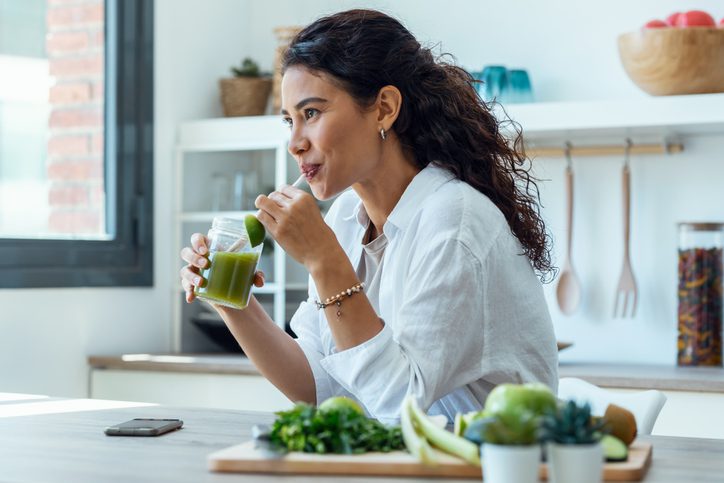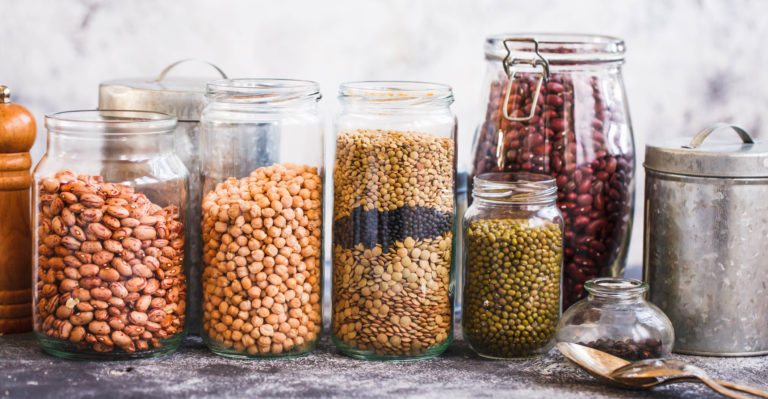Eating well before, during and after your pregnancy will benefit both you and your baby. The May issue of MiNDFOOD has a great selection of recipes to make eating right for your baby easier.
A baby requires certain nutrients to help it develop and grow. A healthy diet before and during pregnancy will reduce the risk of birth defects and minimise the risk of any complications at birth.
It is a myth that a women needs to eat for two when they are pregnant. A women’s focus should be on the nutrients she is consuming rather than the calories. During the first trimester a women only needs to have 300 more kilojoules, second trimester 600 kilojoules more and third trimester 900 kilojoules. The best rule of thumb is to eat when you are hungry, this will of course vary depending on your level of activity.
Health professionals recommend pregnant women consume the following per day:
Grain products: 4-5 servings.
Fruit: 4 servings.
Vegetables and legumes: 5 servings.
Dairy products: 2 servings.
Meat, fish, poultry, nuts: 1 serving.
The essential nutrients a baby requires for its normal development are:
PROTEIN
Composed of amino acids it is the building blocks for human cells, these are essential for a baby to grow and develop. Most women already consume a protein-rich diet, especially if they are eating red meat. Protein needs are only slightly increased (about 6-10g per day); this can easily be gained through adding nuts, seeds and dairy foods to their diet.
FOLATE OR FOLIC ACID
Folate protects against neural tube defects such as spina bifida. It is in the first 21-28 days of the pregnancy that the foetus requires the mother to have optimum levels of folic acid. Doctors recommend that women take folate supplements and or a diet rich in folate rich foods as they need consume at least 400mg each day but no more than 1000mg. Rich sources of folate include leafy greens, brown rice, spinach, broccoli, legumes and beans, asparagus, strawberries, avocado and oranges.
IRON
Low levels of iron have been associated with low birth weight and premature delivery. Because many women are already low in iron before they become pregnant, it is often advised they take an iron supplement once they decide they want to conceive. It is recommended that women consume 27mg of iron per day.
If you choose to take iron supplements, be sure to drink plenty of water and eat fibre rich foods as constipation can often be a side effect to iron supplementation. Increasing iron-rich foods in your diet will also help, good sources include lean red meat, dark chicken meat, eggs (cooked), dried seaweed, wheat germ, parsley, and tofu.
Remember iron needs vitamin C to be absorbed into the body so a glass of orange juice or some leafy greens is advised. Also remember that consuming large amounts of caffeine inhibits the absorption of iron.
CALCIUM
We grow up hearing we require calcium for healthy bones and teeth so it is vital that during pregnancy the mother consumes a diet high in calcium rich foods. Aim to eat three to four serves of dairy or calcium-rich foods. If you are a vegan you should consult your doctor for advice. Other non-dairy sources of calcium include: sesame seeds, tahini, dried seaweed, carob powder, sardines, tofu, almonds, figs and parsley.
OMEGA-3 FATTY ACIDS
These are required for the normal development of the baby’s nervous system, eyes and brain. It is recommended that pregnant women consume 300mg of DHA per day. Omega-3 rich foods include oily fish, walnuts, pecans, linseeds and green leafy vegetables.
WATER
Pregnant women need to drink at least six to 10 glasses of water per day, in summer this may need to be increased, it will also increase depending on your level of activity.
How a healthy pregnant diet should look:
Each day enjoy a fresh fruit juice made using fruits in season. Eat a breakfast that includes fruit and grains and a serving of dairy. This may be a porridge made from oats, rice or polenta or some wholegrain toast.
Sprinkle ground linseeds or chopped walnuts and pecans on fruit salads or breakfast cereals, steamed vegetables to increase your omega-3 intake. Meals should be small and frequent. Carry snacks with you at all time; nuts and seeds, fresh fruit and berries, hummus, vegetable crudités (steamed asparagus, carrots, broccoli), nori sheets or yoghurt.
Carry a water bottle with you everywhere you go; ensure you drink two litres a day. In winter you may choose to take a thermos of herbal tea.
Remember soups are a fantastic way of getting liquid into your diet; they are a good way of increasing the amount of vegetables you are eating. Add a cup of grain to the soup and you have a complete meal.
Add handfuls of chopped fresh herbs, especially parsley, to your soups, salads, dressings and sauces. Leafy green vegetables should be a mainstay of your diet.
Each meal should feature a grain be it rice, quinoa, spelt, barley, wheat, polenta or a combination of these. Eat protein-rich foods especially beans, nuts and legumes.
Buy organic, lean red meat and chicken and cook it until well done. Eat fish is once to twice a week, but avoid large fish such as swordfish and shark due to mercury concerns.
Prepare your meals with the freshest available ingredients. Never eat food that has been in the fridge for longer than one day.
Eat to nourish rather than to fill and avoid processed, fatty and fast foods. Eat sitting down and take the time to chew your food thoroughly.
A pregnant women needs to avoid:
Alcohol is best avoided altogether. Excessive alcohol consumption has been associated with miscarriage, premature births and birth defects. If you feel you would like to drink, limit consumption to one to two standard drinks per week. Remember alcohol is a toxin that travels in the bloodstream across the placenta.
Smoking.
Consuming too much vitamin A, this can lead to birth defects and liver toxicity.
Peanuts have become a very controversial topic as of late. Health professionals now recommend avoiding peanuts during pregnancy as this can lead to childhood allergies.
Caffeine. Research shows that more than 300mg per day can lead to a lower birth weight. Try to keep it to one cup of coffee a day. Remember energy drinks and chocolate also contain caffeine; dark chocolate contains double the amount that milk chocolate contains.
Raw and uncooked eggs. These may contain salmonella and cause nausea and vomiting, which can affect your unborn baby. Avoid mousses, meringues, home made ice creams and mayonnaise and soft-boiled eggs. Sprouts also can contain salmonella so they should not be eaten raw or cooked during pregnancy.
Excessive exercise. Consult your doctor before embarking on an exercise regime, minimal exercise is recommended in the first trimester.
Listeria is a type of bacteria found in certain foods. It can cause an infection in your baby called listeriosis, and can cause miscarriage and still birth.
To avoid contamination ensure:
All fruit and vegetables are thoroughly washed before eating.
Wear gloves when gardening and wash hands well before preparing or handling food.
Clean chopping boards properly
Do not eat leftovers after one day.
Avoid raw and undercooked meat and seafood; this includes sashimi, sushi, pate and oysters.
Thaw meat, chicken and seafood properly before cooking and serve piping hot.
Store cooked and raw food separately.
Avoid soft cheeses including ricotta, cottage, brie, feta and camembert.
Avoid unpasturised milk and dairy products.
Do not eat processed cold meats and processed ready-made salads.





